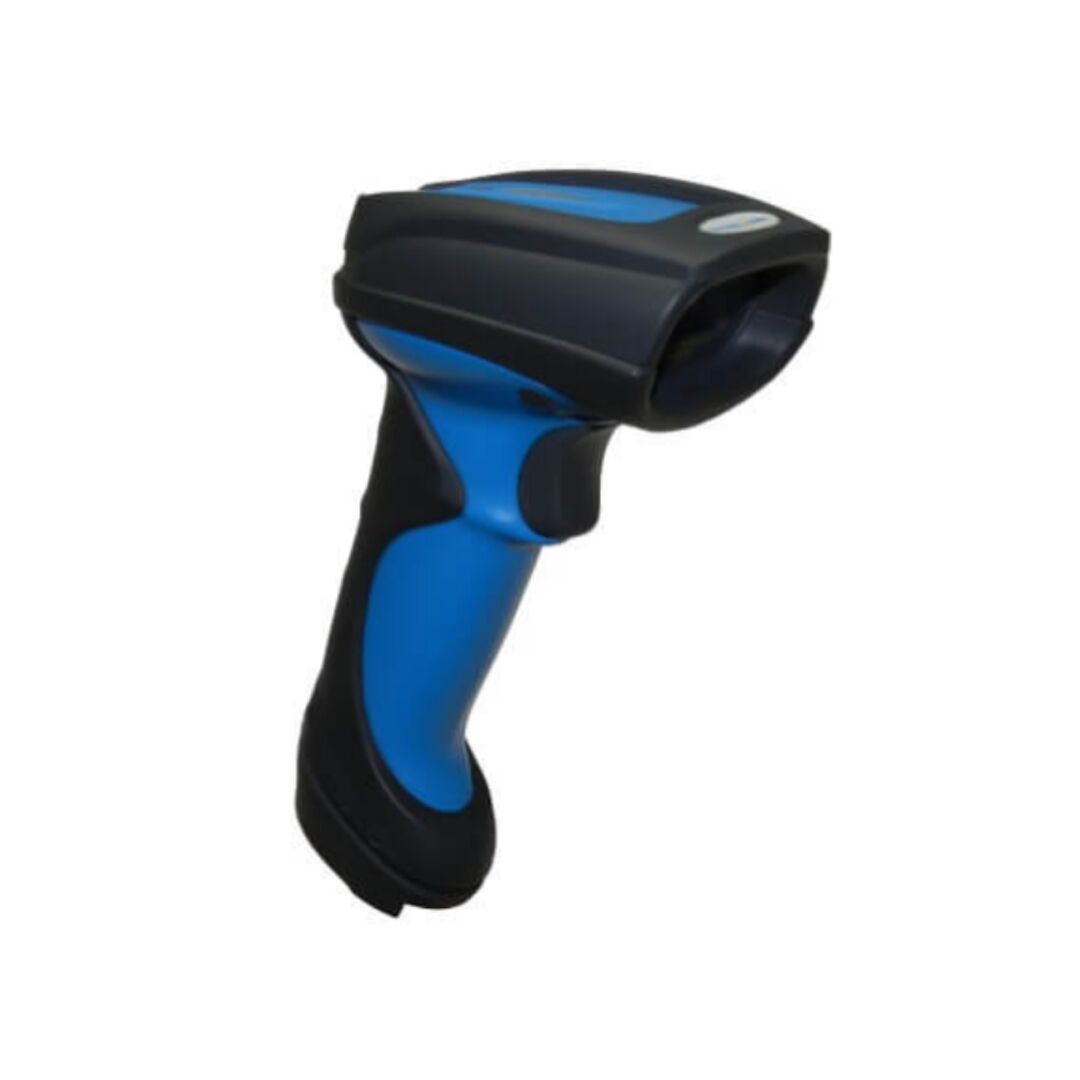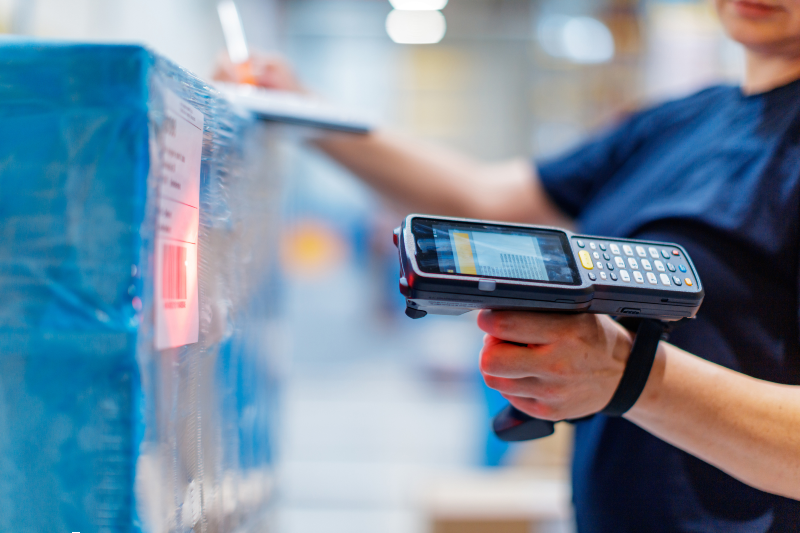Compact Barcodes Scanners for Fast Scanning
Compact Barcodes Scanners for Fast Scanning
Blog Article
Picking the Right Barcode Scanner for Your Service Needs
Choosing the appropriate barcode scanner for your service calls for a nuanced understanding of your specific operational needs and environmental conditions. Factors such as scanner kind, rate, and compatibility with existing systems play an essential function in figuring out the best choice.
Understanding Barcode Scanner Kind
When it involves choosing a barcode scanner, understanding the various kinds offered is vital for meeting specific organization requirements. Barcode scanners can be categorized right into numerous types, each designed for various applications and atmospheres.
Handheld scanners are one of the most typical, offering transportability and simplicity of use, making them appropriate for retail and inventory monitoring. They normally link using USB or Bluetooth, supplying flexibility in procedure. Fixed-mount scanners, on the other hand, are made for high-volume scanning applications, commonly found in setting up lines or checkout counters. These scanners are placed in a stationary placement, enabling for quick scanning of several things one by one.
Another kind is the mobile computer system, which integrates scanning capabilities with computing power. These devices are suitable for field procedures or storage facility monitoring, enabling information collection and real-time supply tracking. In addition, there are commercial scanners that are constructed to withstand harsh atmospheres, such as severe temperature levels or exposure to dust and moisture.

Trick Functions to Take Into Consideration
What vital attributes should organizations prioritize when selecting a barcode scanner? Firstly, scanning rate is critical, as faster scanners enhance operational performance, particularly in high-volume settings. The scanner's ability to check out different barcode styles is additionally crucial; guarantee it sustains prominent kinds like QR codes, UPC, and Code 128 to accommodate varied supply products.
Resilience is an additional essential attribute, particularly for services in sturdy setups. Try to find models that are built to endure declines, dirt, and dampness. Furthermore, take into consideration the connectivity options readily available; whether you choose USB, Bluetooth, or Wi-Fi, the appropriate connection can boost combination with existing systems.

Evaluating Your Company Environment
To successfully select a barcode scanner, services must take stock of their specific functional atmosphere. This assessment includes examining the physical design of the office, the nature of the products being scanned, and the typical conditions under which scanning takes place. A retail environment may call for portable scanners that can swiftly process transactions at the checkout, while a storehouse setting could profit from ruggedized scanners developed to withstand harsher problems.
Furthermore, take into consideration the volume of scanning needed. High-throughput settings might necessitate advanced scanning technologies, such as fixed-position scanners or smart phones that can run efficiently in hectic situations. The assimilation capacities with existing This Site stock monitoring systems additionally play an essential duty; make sure the selected scanner can perfectly attach index with software application systems in usage.
Furthermore, analyze the potential for development and scalability. A scanner that satisfies present demands might not suffice as business expands. By thoroughly analyzing these variables, organizations can pick a barcode scanner that not just fulfills instant demands yet also sustains lasting functional efficiency and versatility. This tactical strategy eventually adds to smoother procedures and improved efficiency.
Budgeting for Your Scanner
Having assessed the operational setting and recognized the details needs for a barcode scanner, the next step involves careful budgeting to guarantee a smart monetary investment. Establishing a budget plan starts with figuring out the general costs connected with the scanner, including first acquisition cost, functional expenditures, and potential maintenance costs.
When selecting a barcode scanner, think about the variety of offered options, from handheld gadgets to fixed-position scanners, as prices can differ significantly. It is necessary to stabilize expense with performance; selecting a more inexpensive version may bring about boosted operational ineffectiveness if it does not fulfill your company requirements.
Along with the equipment, consider expenses connected to software, training, and possible upgrades. While it could be tempting to lessen ahead of time expense, buying a quality scanner that lines up with your functional demands can produce long-lasting savings with enhanced effectiveness and reduced downtime.
Lastly, take into consideration the complete price of possession, which includes the scanner's life-span and prospective resale value. By meticulously intending your spending plan, you can ensure that your investment in a barcode scanner will improve your functional productivity and monetary efficiency.
Combination With Existing Solution
Integrating a barcode scanner with your existing systems is crucial for optimizing its effectiveness and making sure smooth procedures. barcodes scanners. A well-integrated scanner enhances workflow effectiveness, reduces mistakes, and increases information handling. When picking a barcode scanner, consider compatibility with your present software and hardware infrastructure, including your inventory administration systems, point-of-sale (POS) systems, and venture source preparation (ERP) services
Examine whether the scanner uses common methods such as USB, Bluetooth, or Wi-Fi, which can facilitate very easy combination. Additionally, evaluate whether the scanner's software offers APIs or SDKs that permit personalization and assimilation with Check This Out proprietary systems. This is specifically vital for services with one-of-a-kind operational needs.
Furthermore, take into consideration the scalability of the scanning service. As your company grows, your systems must be able to accommodate extra scanners and deal with raised information volumes without significant reconfiguration. Inevitably, purchasing a barcode scanner that seamlessly incorporates with your existing systems will yield long-lasting benefits, boosting precision, efficiency, and overall productivity within your procedures. Put in the time to thoroughly analyze your assimilation requires prior to making a purchase decision.

Verdict
Finally, picking a proper barcode scanner demands a detailed assessment of numerous factors, including scanner kinds, vital attributes, and the certain business environment. Appropriate budgeting for both procurement and operational prices is important, along with making certain compatibility with existing systems. By diligently thinking about these components, organizations can improve effectiveness and performance, ultimately causing boosted operational outcomes. The best barcode scanner works as an important tool in streamlining procedures and assisting in reliable inventory monitoring.
Report this page